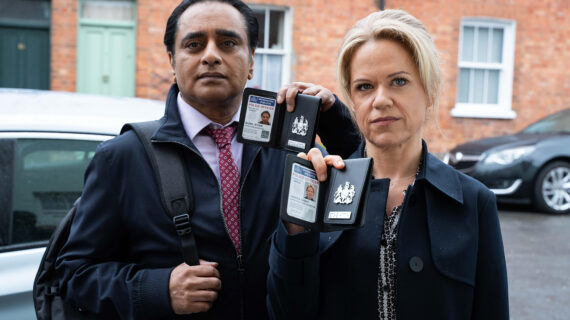Zac Schultz:
Republicans at the capitol have different ideas on how to address the special session bill. Senate Republicans want to pass the stalled state budget first and deal with the Foxconn bill in the Joint Finance Committee. Assembly Republicans decided to hold a public hearing before the Assembly Jobs and Economy Committee, which is chaired by Representative Adam Neylon who joins us now from Milwaukee. Thanks for being here.
Adam Neylon:
My pleasure.
Zac Schultz:
This bill would provide Foxconn with $3 billion in taxpayer money and yet they only sent a statement to be read at the hearing. Isn’t it a little concerning they weren’t there to answer questions about this proposal?
Adam Neylon:
No, it wasn’t concerning at all. I think we covered almost every single issue you can cover on this bill. It was a very lively, good discussion. I think it was a productive discussion. I think that now that we’ve had that first hearing, I would imagine at some point Foxconn will be available and will be in Wisconsin to discuss this specific piece of legislation. But this is a long process. And this is only the first step. You know, I wouldn’t make anything of it at this point.
Zac Schultz:
There were a lot of questions about protections for workers and taxpayers making sure Foxconn lives up to their promises. Do you think stronger language needs to be written into the bill in that regard? Are you open to amendments?
Adam Neylon:
I'm absolutely open to amendments. I think there are ways we can improve this piece of legislation. To start, I think it is actually very good legislation. And for where we are in the process, I'm very happy. But I think there are certain things specifically targeted at making sure this investment best benefits the people of Wisconsin. Some sort of Wisconsin-first provision to make sure if all things equal, Wisconsin vendors and Wisconsin workers are the ones seeing these benefits flow to them.
Zac Schultz:
Because of the Manufacturing and Ag Tax Credit, Foxconn's corporate tax rate eventually will be .4%. Most of the $3 billion in incentives will be straight cash paid from the state to Foxconn. Do you consider that corporate welfare as others are calling it?
Adam Neylon:
I believe that it is an incentive that’s necessary to bring one of the top manufacturers in the world into a market that can support it. And we can thrive. And it’s too good an opportunity to pass up. I wouldn’t label it as corporate welfare. What I would say is that it’s targeted economic development specifically to benefit our state. Taking advantage of resources and our strengths as a state, such as manufacturing, the strength of our work force, our skilled labor force. Taking advantage of these strengths and investing in our future.
Zac Schultz:
Now the conservative group Americans for Prosperity released a statement yesterday opposing the deal, saying they can’t endorse the tax credits in this package. Are they misguided in what they are looking at?
Adam Neylon:
No, they’ve long said they don’t believe in using these types of tax credits for economic development. That’s always been their position. I tend to disagree with them. I think economic development should be done in a targeted beneficial way. And I think when you have an opportunity to bring in jobs to Wisconsin, thousands of jobs, millions of dollars in construction, you have to take advantage of that opportunity. The people of Wisconsin deserve it. When you knock on doors when you go to communities throughout Wisconsin people want jobs. People want economic development. They want opportunities for them and their families. It’s up to us to seize this opportunity so we can provide them with things like jobs, opportunity, more skilled workers into our work force. This is going to bring — I heard a good line the other day — this is going to be a brain gain, not a brain drain. We’ve been losing workers for years. They’re going to other states. Here’s an opportunity to bring workers into Wisconsin instead of losing them on the other end.
Zac Schultz:
The last time Wisconsin did some of these major packages it was back with Mercury Marine around 2010 and it wasn’t long after that Harley-Davidson and some other manufacturers came looking for some of those same incentives. Do you imagine something like that happening again? Are other large manufacturers either in the state or looking to come in are going to ask for something on this scale?
Adam Neylon:
Of course. I believe of course people going to ask for it. And those conversations are already taking place. My phone’s been ringing literally non-stop since the public hearing was scheduled in the jobs and the economy. And a lot of people are already business owners or companies in Wisconsin that are saying yeah, this would be great but what about this benefit for us? Why can’t we change the climate to benefit all? And I think these are worthy discussions. And I'm willing to participate in them moving forward to see what more we could do to help the people of Wisconsin that are already here and already creating jobs and already working and providing for their families. I think these are good discussions. And I think we should continue to have them. But I will point out in this legislation, there are things like the enterprise zone that is expanded five more zones than WEDC can designate for different types of benefits and incentives for growth in Wisconsin and hiring new employees that could be provided to any company in Wisconsin that applies through WEDC. What we like to do is look for clusters and zones in areas of opportunity to develop in the future. And those aren’t going to Foxconn, but they will be going to companies in Wisconsin to help them grow here.
Zac Schultz:
Now, this bill calls for expedited environmental permitting and there’s no environmental impact statement. Do you think we are going to be missing out on some of the potential environmental dangers ahead of time before this gets put through?
Adam Neylon:
That's a good question. I think that–I want to establish first and foremost Foxconn will still have to comply to the Clear Air act, Clean Water Act. They’ll still have to go by all the waste removal standards. They’re not exempt from the law. What we are doing is expediting and streamlining the process at the beginning when you are applying for these permits and your application. Because quite frankly a project of this scale could be decades before it would be approved through traditional ways. So I think if we want to actually see Foxconn investing in Wisconsin, this is an area we have to be flexible in. However, I also want to point out this does not mean they are exempt from DNR oversight. DNR is still able to participate in the construction process. We are still able to have oversight to make sure that environmental protections are taking place. So, you know, while — we should expedite this process or it could take decades to actually get implemented, I think there are protections in place.
Zac Schultz:
All right. We will have to leave it there. Thank you for your time. Representative Adam Neylon from Pewaukee.
Adam Neylon:
Thank you. Thanks for the invitation. I appreciate it.
Search Episodes
Related Stories from PBS Wisconsin's Blog

Donate to sign up. Activate and sign in to Passport. It's that easy to help PBS Wisconsin serve your community through media that educates, inspires, and entertains.
Make your membership gift today
Only for new users: Activate Passport using your code or email address
Already a member?
Look up my account
Need some help? Go to FAQ or visit PBS Passport Help
Need help accessing PBS Wisconsin anywhere?

Online Access | Platform & Device Access | Cable or Satellite Access | Over-The-Air Access
Visit Access Guide
Need help accessing PBS Wisconsin anywhere?

Visit Our
Live TV Access Guide
Online AccessPlatform & Device Access
Cable or Satellite Access
Over-The-Air Access
Visit Access Guide
 Passport
Passport

















Follow Us